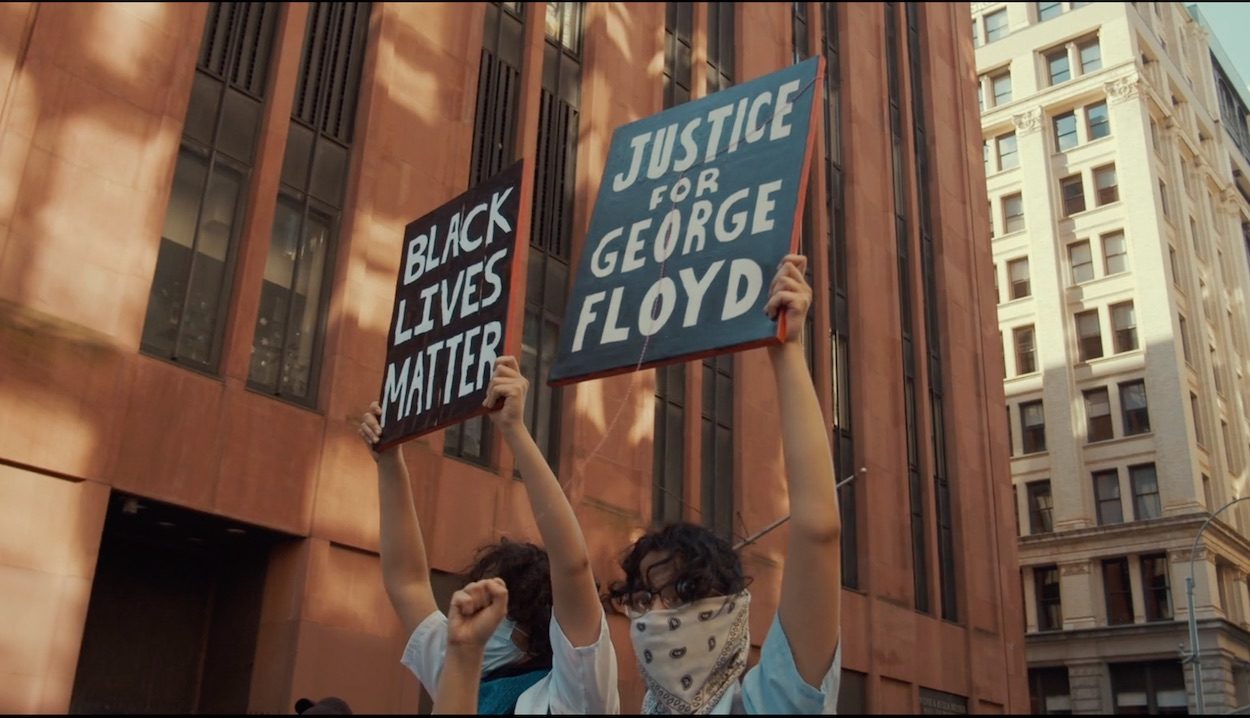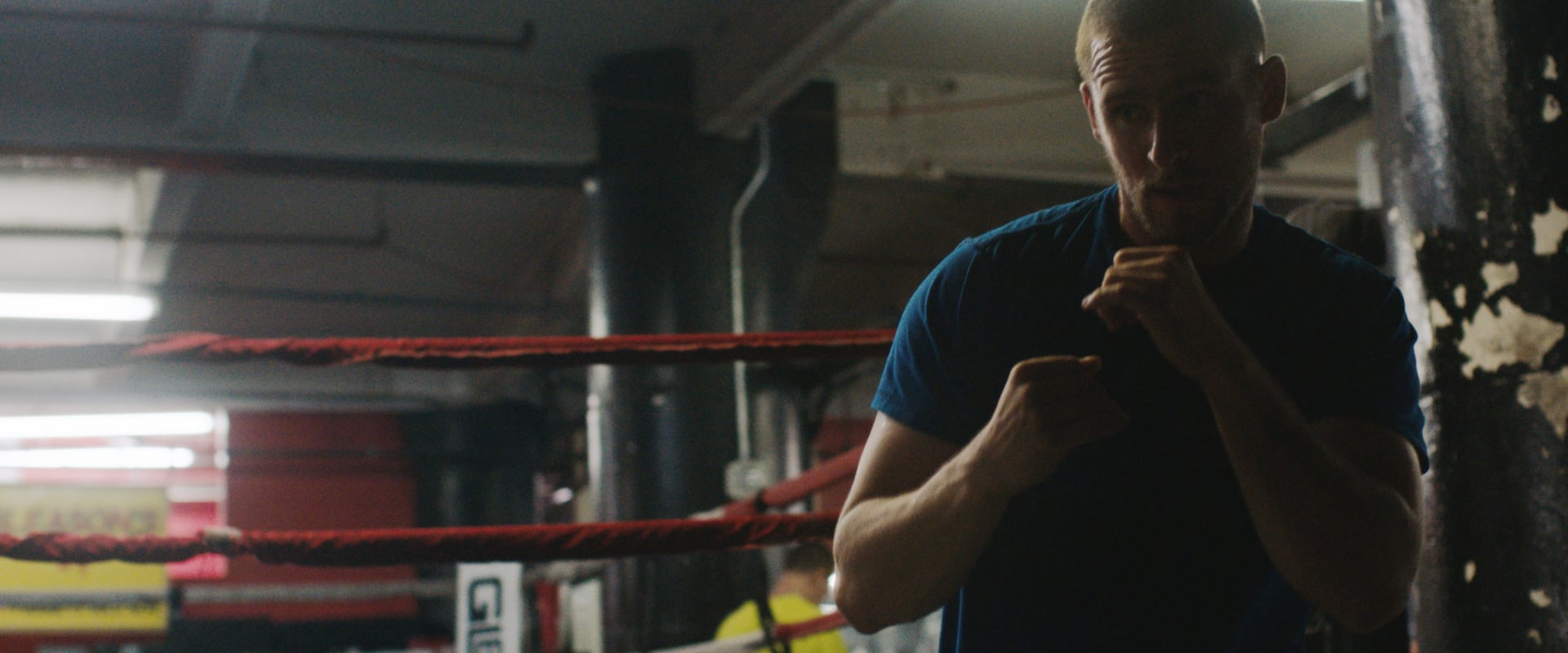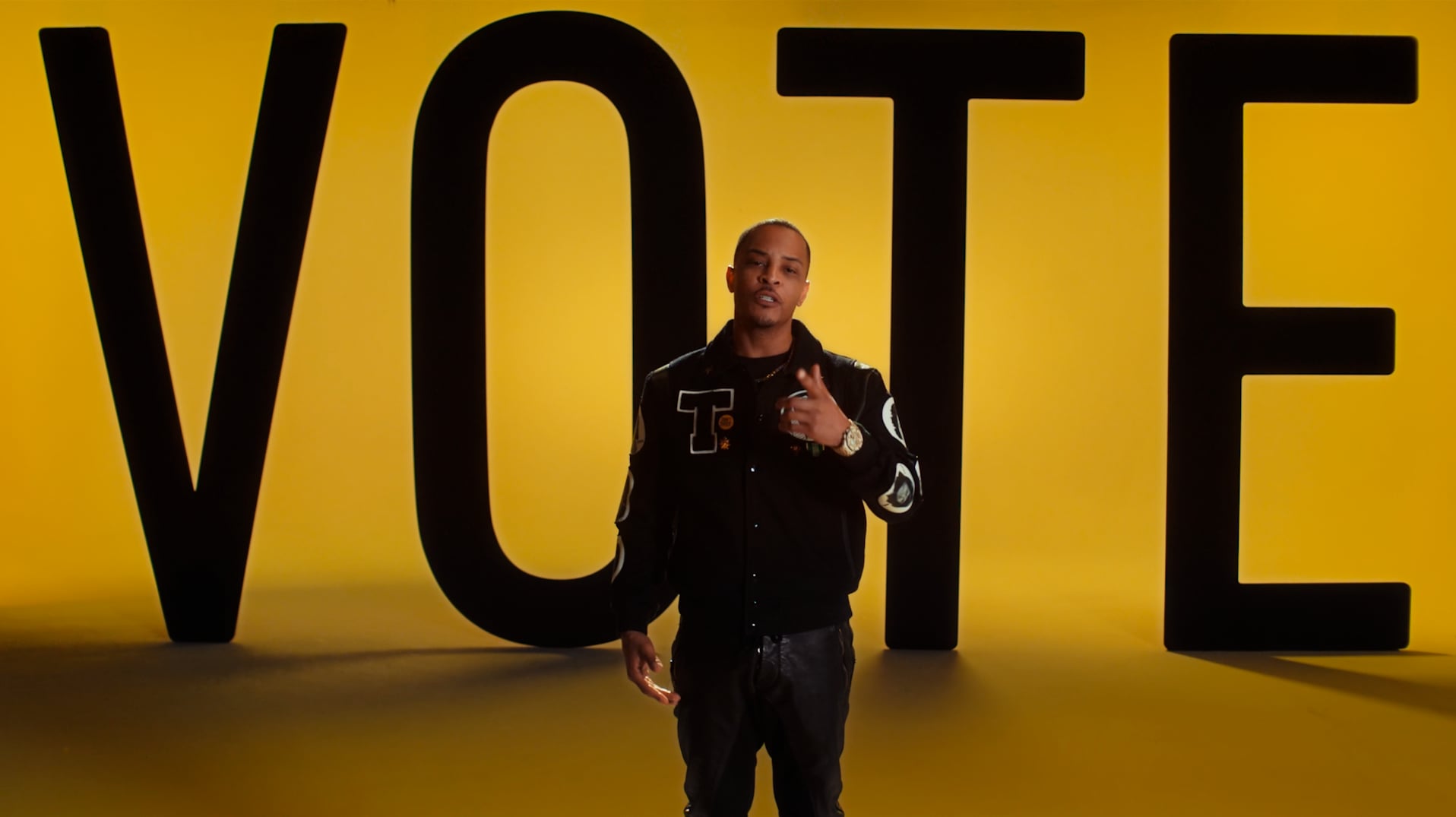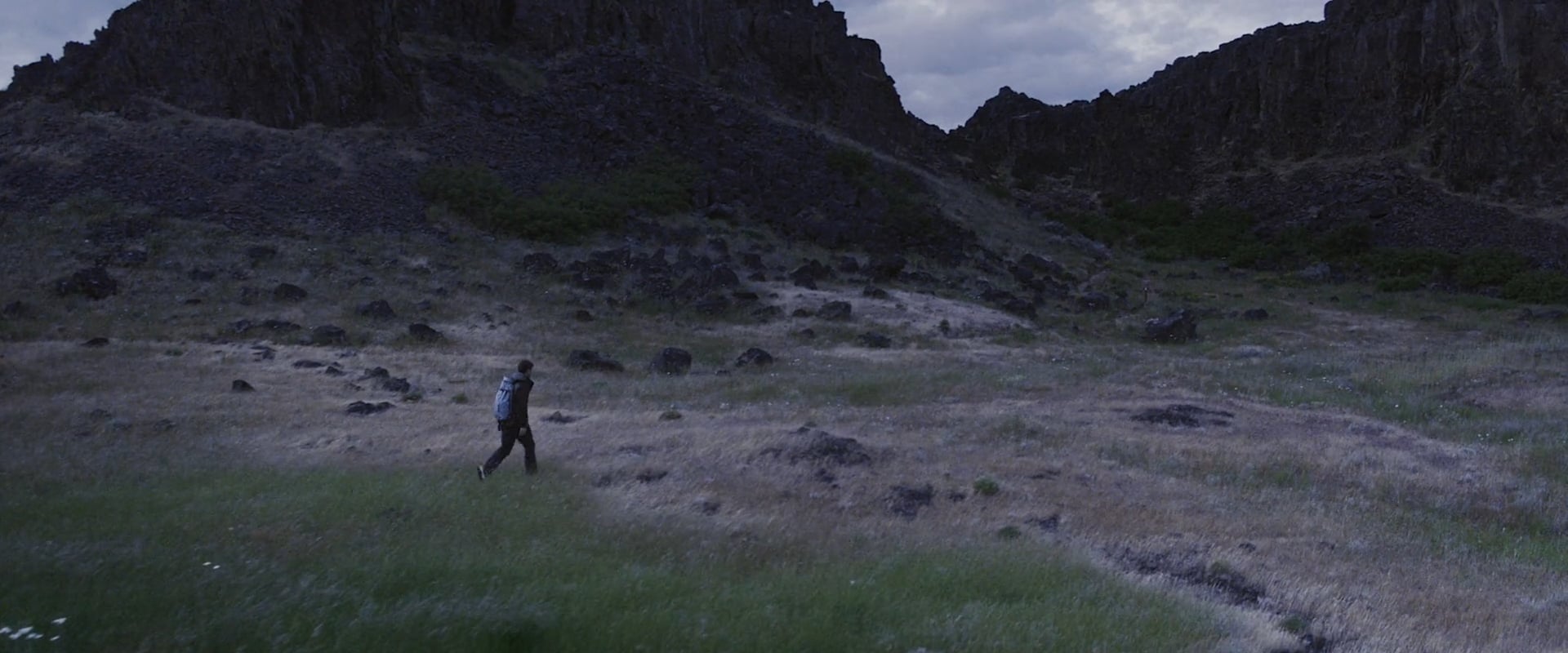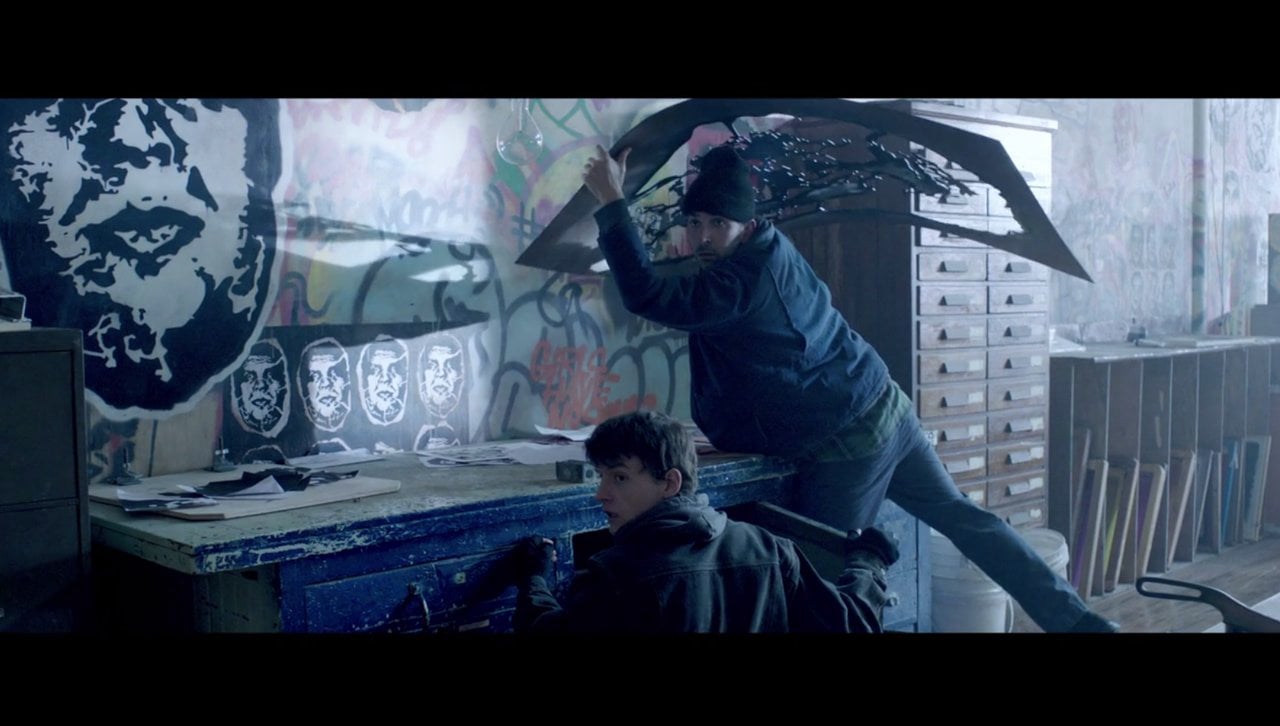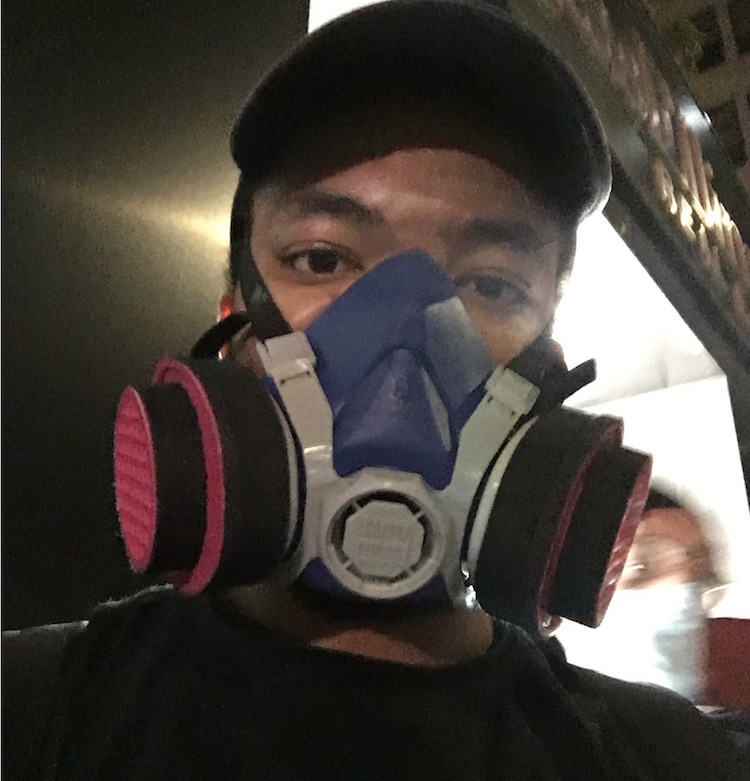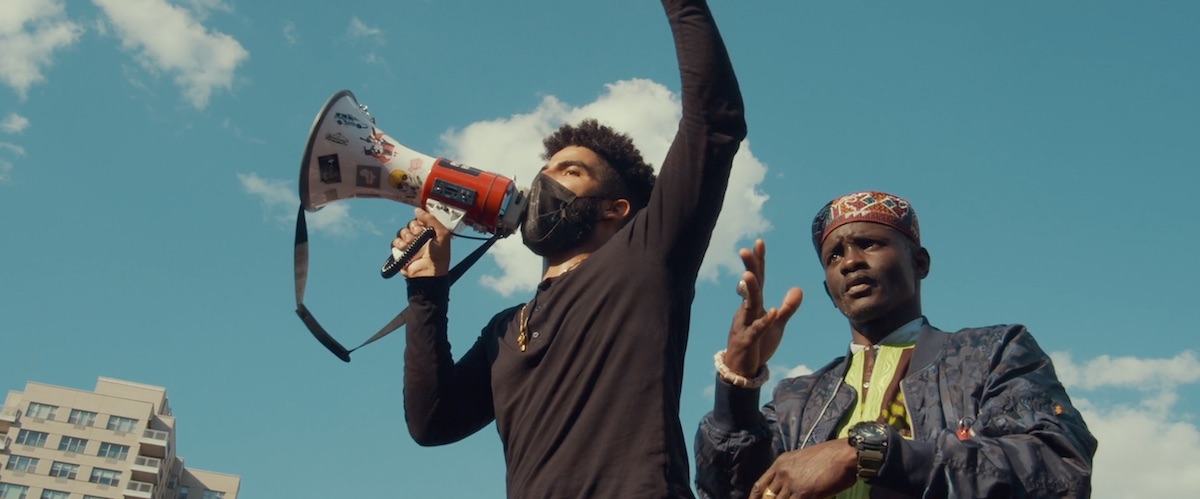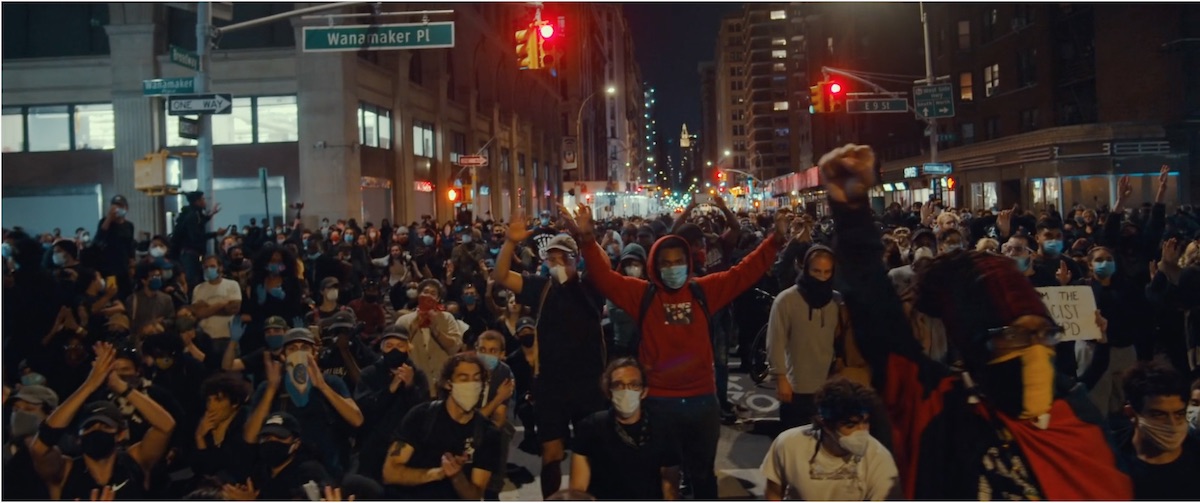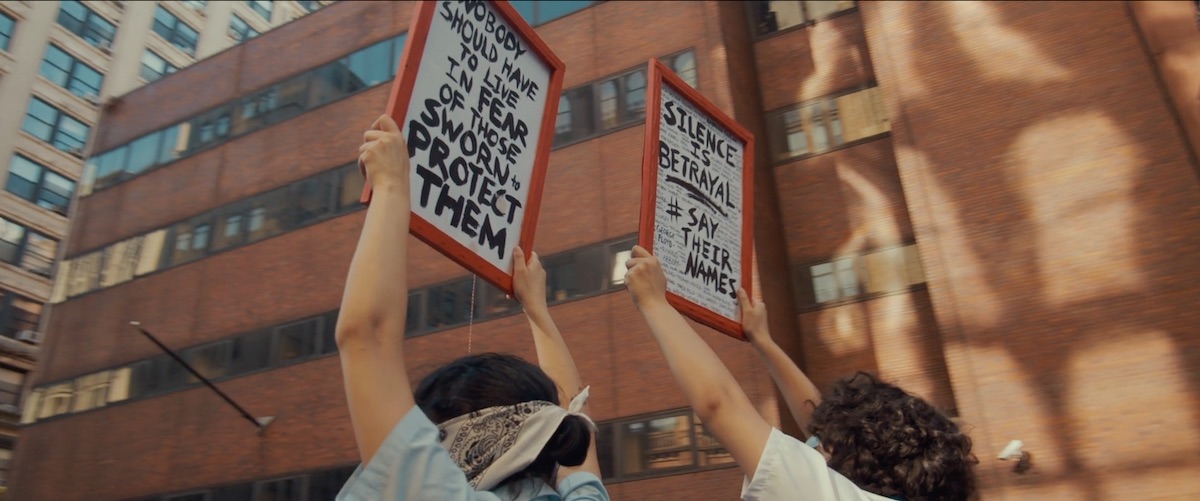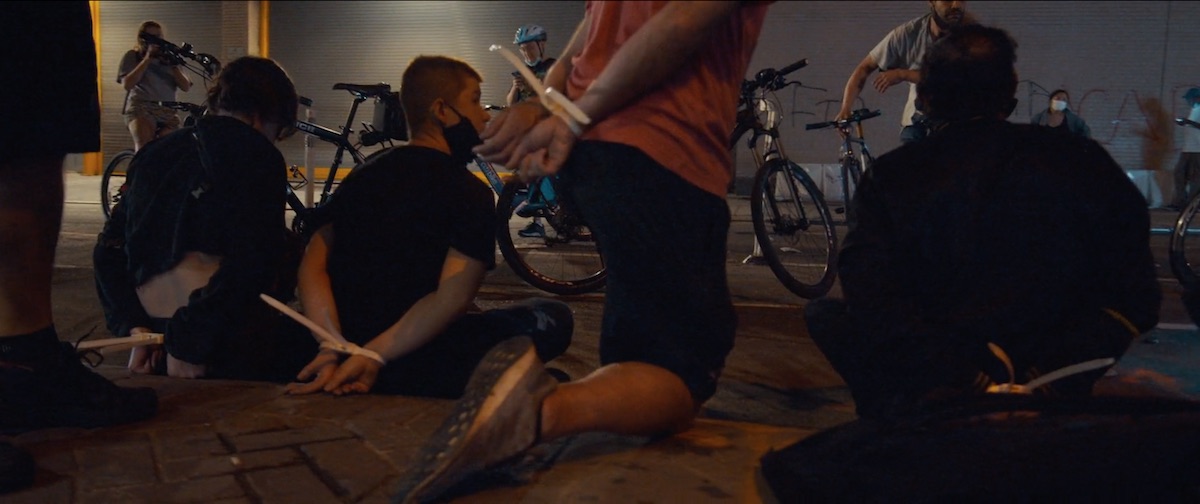Were you clear about the process of this film, what you wanted to achieve, from the start?
I definitely knew what I wanted to say before I started shooting it. My key message was that we need to not burn New York City because we need it running at full capacity in order to beat Donald Trump in November. But, never in a million years did I expect to see and capture my neighborhood descending into the war zone that you saw in my film.
How did you manage the whole production in such a short time – did you galvanise crew and editors from your commercials work?
I shot day and night on Saturday, May 30th, and picked off a few extra shots on Sunday night. Then, I pulled a few all-nighters in a row to get the edit done. Next, the night before I released the film, I called up my frequent collaborator, Geoff Strasser, to do the sound design, and my friend Bilali Mack to do a few clean-ups.
The emotional and thought-provoking voiceovers are pitch perfect to the visuals. Please tell us about the recordings.
I got up on the morning of May 30th, listened to Cornel West’s interview and Killer Mike’s press conference and immediately knew I had to do something. Cornel West does such a great job of presenting the problem and Killer Mike does an equally great job presenting the solution. That’s how I ended up structuring the piece in hopes of making a film that would be productive and actionable.
You made another short doc on the Not Our President campaign in 2016 – were there lessons learnt through that experience which you carried over?
NOT MY PRESIDENT was very reactionary. I was going out to protest Donald Trump’s election and happened to bring a GoPro with me. WE ARE GEORGE FLOYD was reactionary in that I was reacting to an event in real-time, but I knew exactly what I wanted to say which dictated my point of view and the tools that I used.
The big difference is that NOT MY PRESIDENT didn’t propose a solution. It was very much an emotional reaction. This time, it was very important to me to help people cope with, process, and channel their emotions into something actionable.
Going forward how important do you feel film is in the movement for conscious change and the dismantling of systems?
This is our moment, as filmmakers, to make a very real difference. Storytelling coupled with the powerful distribution of the internet allows for asymmetrical influence. We have no choice but to use our craft to aid in this battle.
There’s a politically keen eye running through your work – we particularly love your short film on the street artist Shepard Fairey and your portrayal of Kesy. What was the trigger that made you want to become a director?
I started out making skate videos when I was 9 years old. I think that a lot of my sensibilities were shaped through growing up skateboarding in downtown Washington, D.C. The proximity to politics has always been a part of my identity.
Is there anything else you’d like to share?
What’s happening right now is a wake up call that the next few months are going to be brutal physically and emotionally. We need to get organized quickly because, in my opinion, Donald Trump is already laying the groundwork for a constitutional crisis.
What films should we be watching to inform, educate and wake us up?
House of Cards. I’m joking but I’m not really joking…
LINKS:
